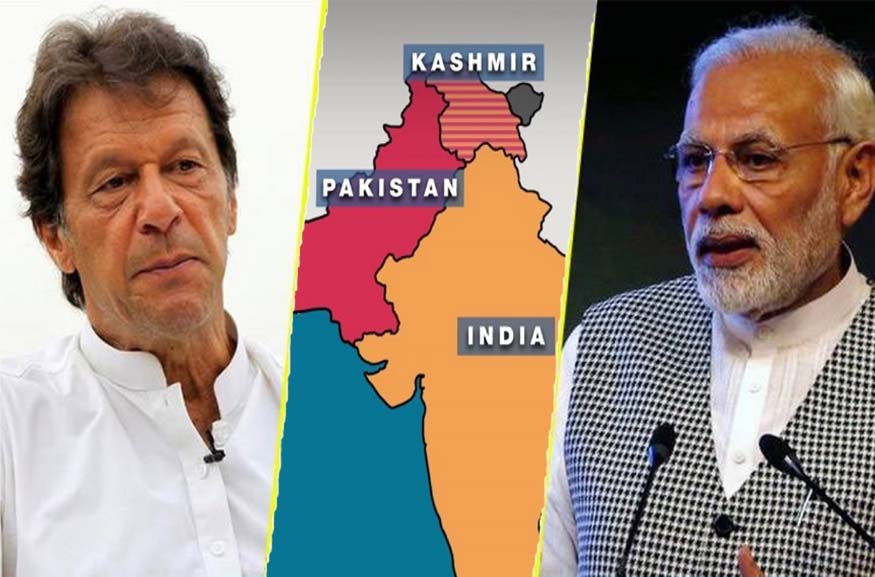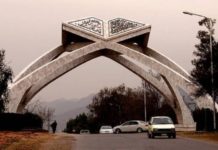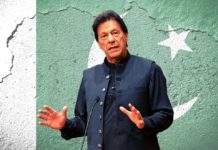The column on Pak-India conflict that Dawn refused to publish.
The release of captured Indian fighter pilot Abhinandan Varthaman is excellent news, Pakistan’s gesture that it wants to de-escalate a crisis that put the world on edge. Equally, this act conveys confidence that Pakistan has had the upper hand in a conflict not of its own choosing. Pakistani war rhetoric, though disturbingly loud, was less shrill than that within India. PM Khan, to his credit, showed statesmanship by inviting dialog instead of replaying his container days. ISPR releases too were measured, not inflammatory.
These are good omens but surely it’s time to think beyond the next few days which, hopefully, will see a gradual winding down. But, assuming this happens, shall we simply return to the situation before the Pulwama tragedy? Or will another suicide attack claimed by some Pakistan based militant group create a still bigger crisis? This is no time for hubris.
Fact: during the current crisis Pakistan received little support internationally. Turkey and the OIC have condemned the Indian incursion into sovereign Pakistani territory. Still, OIC ignored Pakistan’s objections and invited Indian foreign minister Sushma Swaraj as its guest of honor. Elsewhere the silence has been deafening.
China – the all-weather friend on which Pakistan pins its hopes – has remained studiously cautious, issuing little more than homilies urging peace. One should not expect otherwise. China competes strategically with the United States and India, but it also trades heavily with both. There is no war talk and no visceral animosity among members of the China-US-India triad. Whether China will once again oppose a UN Security Council resolution to declare JeM’s Masood Azhar a terrorist is worth watching out for.
Many in Pakistan, including in the Army, see the United States as waiting to pounce upon and seize Pakistan’s nuclear weapons at the first opportunity.
Saudi Arabia, whose munificence Pakistan counts upon, has refrained from substantive comment. Although two weeks ago Saudi crown prince Mohammed bin Salman received the most extravagant welcome in Islamabad accorded to any foreign ruler in recent history, the desert kingdom chose silence. We need but recall that the crown prince’s next stop had been Delhi. Also, that in 2017 Saudi Arabia’s highest civilian award was conferred by King Salman upon prime-minister Narendra Modi. Although pellet guns were then being freely used to blind Kashmiri protesters, the Saudi king did not raise the issue.
The United States, still the most important country in the world, has indeed taken sides – India’s. All semblance of trust between the US and Pakistan evaporated after the 2011 discovery of Osama bin Laden in Abbottabad. In 2018, the US cut off security aid to Pakistan, accusing it of siding with the Taliban. A statement some days ago by secretary of state, Mike Pompeo, characterized India’s incursion as a “counter terrorism action”. Many in Pakistan, including in the Army, see the United States as waiting to pounce upon and seize Pakistan’s nuclear weapons at the first opportunity.
As for neighbors, Iran and Afghanistan: that they choose India over Pakistan goes without saying. Both have repeatedly accused Pakistan of harboring terrorists. An Iranian general explicitly blamed Pakistan after a suicide bomb attacker, using a suicide tactic similar to that in Pulwama, killed 27 Revolutionary Guards two weeks ago.
Such adverse international opinion is not good for Pakistan’s economic health, given its dependence upon the global system. Wars are expensive business, as is maintaining a huge military establishment on alert. To give an idea of the costs involved, consider that putting a single middle-level fighter aircraft into the air costs a minimum of $25,000 per hour!
To deal with an economic crisis, in the months since his election, PM Khan has visited country after country seeking loans and aid. Even if the level of hostilities with India does not rise beyond the current level, it is unclear where the money for maintaining a constant high level of defense preparedness will come from.
Frustrated at the absence of meaningful dialogue with Delhi, the blinding of hundreds of demonstrators, and intrusive house searches, large numbers of Kashmiris have been radicalized.
Presently Pakistan has applied for a bailout from the International Monetary Fund. It also seeks removal from the Paris based Financial Action Task Force’s grey list upon which it was placed in June 2018. FATF monitors money laundering and terror group financing, and has given Pakistan until May 2019 to carry out recommended measures to achieve de-listing. Black-listing, which is a possible further step, could cripple Pakistan economically by isolating it from the global banking system.
Is financial ruination of Pakistan worth the price? And what is it that we want anyway? JeM and others of its ilk are never going to succeed in liberating Kashmir. All that terror attacks do is spill more blood and exacerbate state repression.
Nevertheless, JeM’s ranks have swelled in recent years. For this it thanks Mr. Modi. Frustrated at the absence of meaningful dialogue with Delhi, the blinding of hundreds of demonstrators, and intrusive house searches, large numbers of Kashmiris have been radicalized. Consequently JeM today has competition from still more radical organizations such as Daesh.
India could have dealt with Kashmir differently. By formally acknowledging Kashmir as a problem that needs a political solution, using humane methods of crowd control, releasing political prisoners from Kashmiri jails, and assuring the safety and security of Kashmiris residing in Indian cities, it could have moved sensibly towards a lessening of internal tensions. It did not, for which it has none but itself to blame.
That said, religious radicalization poses a threat to both countries. Days ago PM Khan said India should ask itself why 21-year old Adil Ahmad, who is not known to have ever visited Pakistan, chose to become a human bomb. This question actually leads nowhere. Hundreds of Pakistani soldiers – far more than Indian soldiers – have died after being hit by suicide bombers hoping for easy entrance into heaven. To eliminate them was a major objective of Pak Army’s Rad-ul-Fasad operation.
It is now incumbent upon Pakistan’s security managers to cease discriminating between those who attack Pakistan’s people and army, and those who attack targets in Kashmir. During the present crisis they have demonstrated maturity. They must take the next step now. In that lies the future of a peaceful Pakistan and a peaceful South Asia.
Written by Pervez Hoodbhoy. Dawn refused to publish this column.










You don’t need any newspaper to carry your voice. People will find it and listen anyhow!
Dr. Hoodbhoy, I’ve been following your work for years now and have felt that you are perhaps one of most prolific Pakistani journalists ever. While your work speaks volumes of your undeniable commitment to Pakistan, this particular piece is one of the best I’ve ever come across in terms of opening the eyes of the gullible, passionate, and emotional Pakistani masses.
Pakistan today is undoubtedly, as you correctly stated, is at the crossroads of uncertainty. It stands isolated in the comity of nations. All the so-called friends, like China, KSA, OIC, Turkey, and the like are non-committal vis-a-vis expressing all-out support to Pakistan against India. It is the ever-growing Indian market and the evolving middle-class that countries are after. It’s all about economics and not about obsessing over pieces of land like Kashmir that Pakistan just can’t stop removing from its relational equation with India.
There are times when one wonders why Pakistan’s immediate neighbors are always upset with it. Iran, India, China, and Afghanistan are all different countries but one pre-dominant problem with Pakistan. That problem is extreme Wahabism and Pakistan’s inability to root out extremist elements from its political ecosystem. The Wahabism has infiltrated deep into the military-civil bureaucracy bloodstream. Agencies like ISI for decades now have had issues dealing with extremist elements in there ranks that want to spread the word of Wahabism in every nook and corner of the country and the region.
\
PM Khan is an extremely tough spot. Granted that he’s been able to avert a full-scale war against India but he needs to take serious steps to eliminate the menace of extremism. Pakistan, as you pointed out, is economically going down by the hour. Khan must clean his own backyard or would face growing isolationism. India is great at conducting PR and its economic growth will keep attracting the Europeans and the Americans for a long time to come. In the meantime, Pakistan can’t afford to keep holding to begging bowl and hope that the Saudis will bail them out every time there’s an economic crisis. There is after all a price tag attached to the Saudi assistance, i.e., the conditionality to help the kingdom counter Shiaism with Wahabism.
Progressive Pakistanis are in love with Imran Khan but they like him less when he tows the “Muslim” line blindly. That only implies that that he’s minimizing his options and depending on the OIC-type countries that will, at no cost, come to Pakistan’s rescue in troubled times.
This is clearly a catch-22 situation. Khan can’t afford to swing and miss. Pakistan is walking on thin ice. Mullahs, militants, and the rogue elements in ISI must go. Secondly, make serious overtures of peace with India. A good starting point would be not to include Kashmir on any future peace talks agenda. Go in one-on-one and don’t try to involve a third party. It’s never worked in the past and will never work in the future. Reach out to PM Modi and extend a hand of friendship.
People say that you’re too left leaning. Well, we need people like you. We need liberal and progressive South Asians to talk peace and open the eyes of those who want war ASAP and who get excited over the prospect of hostilities breaking out. Being left leaning is not a scourge – it’s actually a blessing.
Pakistan must decide it’s future. The dynamics of its domestic and foreign policies must change. Khan perhaps is the only leader who has the guts to effect positive changes in the India-Pakistan relationship dynamics. He should go all out and contain this chaos – clean up the mess and make South Asia more livable. This may all mean a political suicide for him but what’s he got to lose? He will, after all, leave a legacy like no other South Asian leader. This is the time he should try to team up with Modi. A solid relationship with India can potentially eliminate the need to go begging around and seeking help from the likes of KSA, Turkey, Malaysia, etc.
In the meantime, Dr. Hoodbhoy, please keep trying and keep give stately advice.
Dear Mr. Hoodbhoy, an excellent piece but plz remember two things. First, Pakistan has just fought an internal war against a very formidable enemy – the TTP. Scars of this war are still fresh. We cannot afford to immediately be drawn into another. Action against organizations like JeM must be taken but the golden question is when should it do so. Till such time Kashmir is burning and there are gross human right violations, I don’t think we can initiate hard-core action against Kashmir based groups who have large support in Punjabi heartland. It would draw us into another internal conflict for which we neither any stamina nor appetite. Secondly, should we bother about world opinion? Pakistan has only enjoyed support of the West when we serve their interests and dance to their time. Our standing in the West has nothing to do with JeM. It is linked with other issues much beyond it. It is linked to larger geopolitical and geoeconomic interests of the West. I hope you will write on it someday.
This needs no 📰 we can hear his voice anyway.
Hasn’t IK already reached out to Modi, after being elected and also in recent days after PAF/IAF action? Released the Wing Commander. What does Modi do in return? Says This was just an exercise, real ops still to come. Then opens up his heavy guns on the LOC. Plus, as per social media, seems the Uri attack was a BJP operation. Again, as per social media, seems they had prior intelligence on Pulwama – *and* they didn’t try to airlift the affected personnel. Etc. So how much kow-towing has to be done? They don’t *want* movement towards peace, they’ve got an election to win. Then as per their very erudite Shashi Tharoor, they will amend the Indian Constitution – once in power. So I don’t IK can or needs to do more. It’s up to the other side now.
@Saleel Islam,
Pakistan has always done this before..
Allow terrorists to attack and when India responds back, they talk of peace. India had a precondition for talks and that is decimation of all terrorists and it’s infrastructure. Had that been done before reaching out to India for talks? IK has no power and he can’t deliver. So, India is setting the equation directly with Pakistan’s ISI/Army. By voilating LOC and bombing inside Pakistan, India demonstrated that this will be the new norm for any terror act in future. India has no fear of Pakistan’s nuclear blackmail. This weakens ISI/Army and strengthens your civil government.
Hope you understand.
I don’t see any reason of Dawn not to publish the article except of their criteria of literary standard.